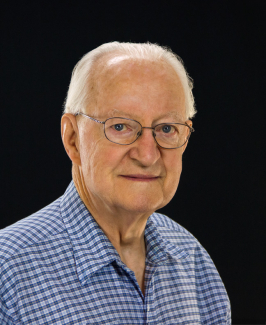Dr. Peter L. Bender, an esteemed experimental physicist and a foundational member of JILA (formerly the Joint Institute for Laboratory Astrophysics) at the University of Colorado Boulder, passed away recently, leaving behind a legacy marked by significant contributions to the fields of geophysics, astrophysics, and precision measurement.
As a JILA Fellow from 1963 to 1995 and later a Fellow Adjoint, Bender was deeply and actively involved in pioneering research that has shaped our understanding of the universe.
Born in New York, Bender's early passion for math and physics propelled him to pursue an undergraduate degree at Rutgers University, followed by graduate degrees at Princeton, where he was influenced by the notable physicist Robert Dicke. Bender's dissertation on the optical pumping of sodium vapor laid the groundwork for a career that would blend rigorous experimental physics with theoretical insights, always aimed at pushing the boundaries of what we understand about physical measurements and astrophysical phenomena.
Bender's tenure at JILA began in the 1960s, after a productive period at the National Bureau of Standards (now NIST), where he focused on precision measurements and magnetic fields. His work at JILA quickly pivoted towards the astrophysical, culminating in a significant role in the Apollo missions' Lunar Laser Ranging Experiment. This collaboration included scientists like Dr. James Faller, another early member and Fellow of JILA. This experiment involved placing retroreflectors on the moon, which are still used to measure the distance between the Earth and the moon with extraordinary precision.
Beyond his lunar research, Bender's contributions extended into other areas of astrophysics and geophysics. Over four decades, he developed the conceptual design and scientific justification for the LISA project (Laser Interferometer Space Antenna), a space mission for detecting gravitational waves, a key prediction of Einstein's theory of general relativity. His work and stewardship helped pave the way for this field's future explorations and have impacted how we perceive phenomena in deep space.
In geophysics, Bender applied his expertise in precision measurement to study the Earth's gravitational field, contributing to gravity mapping missions like GRACE (Gravity Recovery and Climate Experiment) and its successors. These missions monitor variations in Earth's gravity, which have implications for studying water reserves, sea level rise, and climate change.
Throughout his career, Bender was not just a mentor but a true collaborator to many in the scientific community. He was known for his quiet yet profound ability to question and refine existing theories and experiments, pushing scientific inquiry further with each project. His advisory roles for NASA, the National Academy of Sciences, and the National Research Council underscored his commitment to science and its advancement.
Bender's legacy is not only marked by his scientific achievements but also by his deep philosophical engagement with the implications of science for society. He believed strongly in the power of scientific inquiry to contribute positively to the world. Still, he remained acutely aware of the broader social and economic contexts in which scientific work is embedded.
As we remember Peter Bender, we reflect on a career that epitomized the pursuit of knowledge and the application of that knowledge to solve real-world problems. His work continues to inspire a new generation of scientists at JILA and beyond, ensuring that his contributions to astrophysics and precision measurement will endure in the scientific community for decades.
Please add any memories you have of Peter to this memorial site: https://jila.colorado.edu/newsevents/dr-peter-l-bender-memorial-page
Written by Kenna Hughes-Castleberry, JILA Science Communicator, and edited by Robin Stebbins.




